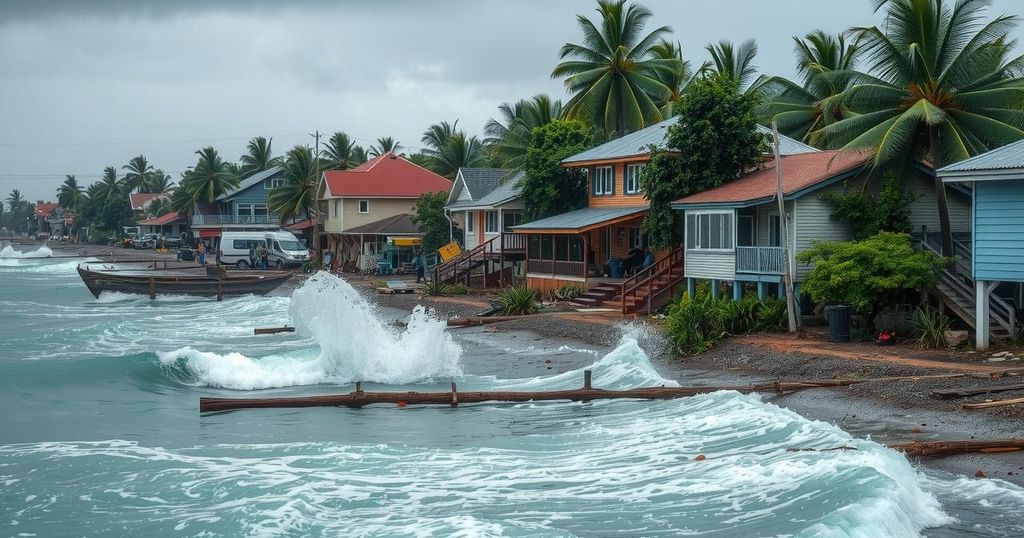Cyclone Chido Triggers Catastrophic Damage and Rising Death Toll in Mayotte

Cyclone Chido has caused substantial devastation in Mayotte, resulting in confirmed fatalities that may reach several hundred as rescue operations continue. The cyclone’s severe impacts have led to flattened neighborhoods, major infrastructure damage, and calls for urgent humanitarian assistance from France. Recovery efforts are underway, with the government deploying military and rescue teams to aid the affected population.
Cyclone Chido has wreaked havoc in the French territory of Mayotte, leading to a staggering death toll that could reach into the hundreds, according to local officials. The cyclone battered the region over the weekend, with winds exceeding 220 kph. Initial reports confirmed at least 11 fatalities and over 250 injuries, but authorities anticipate these numbers will rise significantly as rescue operations continue. The devastation has left entire neighborhoods, particularly densely populated slum areas, flattened, and access to essential services like electricity and drinking water has been severely compromised.
In response to the catastrophe, France has mobilized rescue teams and dispatched supplies to Mayotte, which has long grappled with economic hardship—making it the poorest French territory in the Indian Ocean. President Macron expressed his condolences and solidarity with the affected population. With the airport sustaining damage to its control tower, only military flights are currently operational. Additionally, emergency personnel from neighboring territories have been deployed to assist on the ground, focusing on restoring infrastructure and providing immediate support to survivors.
Mayotte, an overseas department of France located in the Indian Ocean, has experienced many adversities, primarily due to its economic challenges and vulnerability to natural disasters. Cyclone Chido is just one in a series of severe weather events impacting the region, occurring during the cyclone season from December to March. Past cyclones, like Idai and Freddy, had also inflicted massive destruction in southern Africa, underscoring the growing intensity of such storms—often attributed to the effects of climate change. Mayotte’s infrastructure, primarily made up of informal settlements, significantly amplifies the impact of such disasters, leading to greater humanitarian crises. In light of the destruction caused by Cyclone Chido, French government officials are prioritizing immediate humanitarian assistance, restoration of vital services, and the long-term rebuilding of the affected communities. The response strategy includes establishing an air and sea bridge to facilitate aid and ensure the swift delivery of essential supplies to the impacted areas. The significance of climate change dialogue remains critical, as impoverished regions like Mayotte are disproportionately affected by extreme weather events resulting from global warming, highlighting the necessity for international support in crisis response and adaptation efforts.
In conclusion, Cyclone Chido has inflicted catastrophic damage upon Mayotte, with rising death toll estimates prompting urgent rescue and recovery efforts. The situation remains dire for the local population, who face significant challenges in accessing essential services. The French government is actively responding to the crisis; however, addressing the long-term implications of climate change and its effects on vulnerable regions like Mayotte will require continued international attention and support. The recovery from such a devastating event is expected to be long-term, involving communal rebuilding and infrastructure restoration.
Original Source: apnews.com








